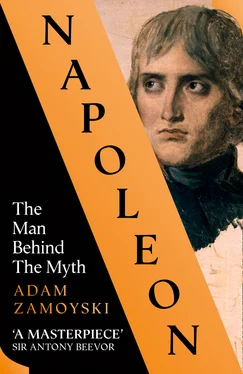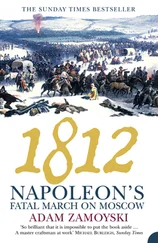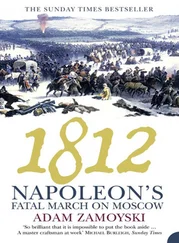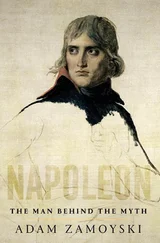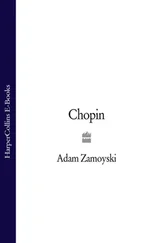In the course of the past year, Bonaparte had become aware of the perils threatening him, and he created a unit of bodyguards, the Guides, to act as an escort. But he needed to make sure that the Army of Italy was also entirely his. He bought the loyalty of the other generals with a mixture of encomiums, promotions, mentions in despatches to the Directory and his Bulletins, and cash hand-outs. On the cessation of hostilities with the signature of the preliminaries of Leoben, the army was just over 80,000 strong, but a large proportion was made up of recent reinforcements, men who had seen little or no service under his command. He refrained from promoting more recent arrivals, and filled the higher ranks of every unit with men who had proved themselves under him, even if it meant giving them precedence over senior officers. On 14 July he celebrated the anniversary of the fall of the Bastille with a parade at which he honoured men and units, followed by a banquet for all those who had distinguished themselves in battle. On 28 August he presented a hundred sabres of honour, ten to cavalrymen, ninety to grenadiers, whom he was already singling out as a kind of elite, his Praetorians.21
‘What I have done so far is nothing,’ he said to Miot de Melito and the Italian statesman Francesco Melzi d’Eril as they strolled in the gardens of Mombello one summer day. ‘I am only at the beginning of the career I must pursue. Do you think it is to enhance the position of the lawyers of the Directory, the Carnots, the Barras, that I have been winning victories in Italy? And do you think it is in order to establish a republic? What nonsense! A republic of thirty million people! With our manners and our vices! It is an impossibility! It is a dream with which the French are in love, but it will pass like so many others. They want glory, they want their vanity to be satisfied, but liberty? They don’t understand it at all. […] The nation needs a glorious leader and not theories of government, phrases and speeches by ideologues which Frenchmen don’t understand. […] I do not wish to leave Italy until I can go and play in France a role similar to that I am playing here, and the time has not yet come: the pear is not yet ripe.’22
For all his cynicism, Bonaparte was still a child of the eighteenth-century Enlightenment, a believer in human progress, to be achieved through the better organisation of society. ‘A France with honest and strong government , that is what I want,’ he told Pontécoulant. He had long ago come to the conclusion that this could only be achieved by dictatorial means. While dining with his staff at Ancona in February, he had astonished them by affirming that the only decent government since the beginning of the Revolution had been that of Robespierre. Strong central authority, he explained, was necessary in order to carry the Revolution to its logical conclusion; to create new institutions based on solid rational foundations, ensure the rule of law, stabilise the currency by abolishing paper money and introducing a functional system of tax-collection, re-establish the Church as a moral base for society, regenerate its morals and make France great once more. He concluded by saying that Robespierre had only failed because he lacked the experience and strength of ‘a military commander’.23
The Directory had once again demonstrated the truth of this. Having placed Augereau in command of the troops in the Paris region, on 4 September (18 Fructidor) it felt strong enough to invalidate the April elections, expelling 154 deputies and thereby recovering its majority. Sixty-five were sent to the penal colony of Guyana. Bonaparte had sent his aide-de-camp Antoine de Lavalette to observe and report back on events. Once the coup had been accomplished, he was therefore able to gauge public reactions and act accordingly. As these had been generally unfavourable, he distanced himself from the actions of the Directory. ‘Your silence is very curious, general,’ wrote Barras, prompting Bonaparte to issue a proclamation expressing his satisfaction at the defeat of ‘the enemies of the fatherland’. In private, he condemned the coup and particularly the deportations to Guyana. Barras remained suspicious, and sent his secretary Bottot to Italy to ascertain what was going on.24
Bonaparte had acquired a new ally in Talleyrand, who had written him a flattering letter seeking his friendship. He responded with an appropriately cordial one full of praise for the minister’s distinguished record, which he, Bonaparte, would certainly reward were he to be in a position to do so. ‘You ask for my friendship, and you have it along with my esteem,’ he wrote. ‘In return, I ask for your counsels, which I will value, I assure you.’ He went on to say that the Revolution had destroyed too much and built nothing, so ‘everything remained to be done’, and the only question was who would be the one to ‘close the Revolution’. Subsequent correspondence confirmed that it was not only their views on Egypt that coincided.25
With the possibility of a Bourbon restoration dismissed by the Fructidor coup, there was no longer any reason for Austria to delay making peace. Britain too was inclined to end the hostilities, and peace talks had been going on at Lille since July between Lord Malmesbury and Charles-Louis Letourneur. But they were undermined by the Directory, which saw them as part of an Anglo–royalist plot. Bonaparte was highly critical of the missed opportunity, arguing that the British could have been allowed to keep the Cape in exchange for agreeing to a French colonisation of Egypt.26
It was not until the end of August that the Austrian chancellor Thugut sent a senior diplomat, the monstrously fat forty-four-year-old Count Ludvig Cobenzl, to direct the negotiations along with Gallo. They took up residence at Udine while Bonaparte installed himself a short distance away at Passariano, a grand country residence set in beautiful parkland belonging to Ludovico Manin, the last Doge of Venice. They skirmished ferociously but dined together, either at Udine or Passariano.
While Thugut was now eager to proceed so as to secure Venice for Austria as quickly as possible, the Directory felt strong and belligerent. Following the unexpected death of General Hoche on 19 September it appointed Augereau commander of the Army of Germany in his place, which suggested the possibility of a fresh offensive against Austria in that theatre. This was unwelcome news to Bonaparte, as it raised the possibility of Augereau stealing a march on him, or at least dimming his glory with a victory. Equally unwelcome were the despatches which arrived from Paris on 25 September informing him that the Directory was sending someone to conduct the negotiations in his stead.
He responded with one of his tantrums. ‘I am ill and I need rest,’ he wrote to Barras the same day, asking him for a discharge, adding that he wanted to settle outside Paris and enjoy at least a couple of years of peace. He wrote to the Directory in the same vein. ‘No power on earth could make me continue to serve after this horrible mark of ingratitude by the Government, which I had been very far from expecting,’ he complained. ‘My health is considerably impaired, it urgently demands rest and tranquillity. The state of my soul is also such that it needs to reimmerse itself in the mass of my fellow citizens. I have for too long had great power placed in my hands.’ The idea of Bonaparte immersing himself in the mass of his fellow citizens was too frightening for the Directory to contemplate.27
The negotiations continued, Cobenzl trying to intimidate Bonaparte with courtly mundanity, only to be met with bullying and feigned rages. The Austrian diplomat was unused to such tactics, and through Gallo he persuaded Josephine to exert a calming influence (for which she would be rewarded by the emperor). But Bonaparte was not to be controlled as he steered his own course; he was under strict orders from the Directory not to cede any part of Venice to Austria, and while he had no intention of following these, he used them to pressure Cobenzl over other things, as by then Austria was set on having the territory. At the same time, he did not want to push the Austrian too hard, as he feared a possible resumption of hostilities, for which his army was unprepared, and he reserved his belligerence for the peace talks.28
Читать дальше
